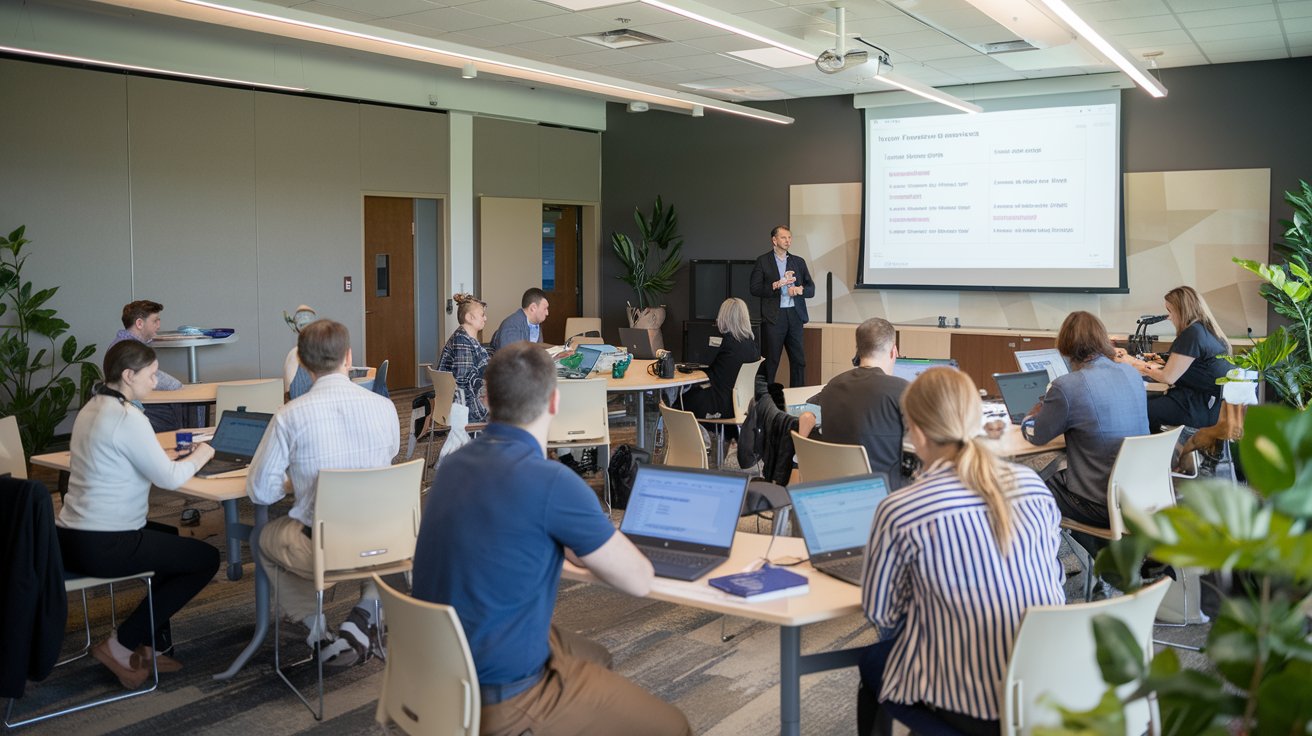In today’s fast-paced and ever-evolving job market, staying competitive is more crucial than ever. Career development workshops have emerged as valuable resources for individuals seeking to enhance their skills, network effectively, and navigate their career paths with confidence. This article delves into the significance of these workshops, what they offer, and how they can impact your professional journey.
Table of Contents
ToggleWhat Are Career Development Workshops?
Career development workshops are structured programs designed to provide participants with practical tools, resources, and insights to advance their careers. These workshops can cover a variety of topics, including resume writing, interview techniques, networking strategies, personal branding, and skills enhancement. They can be offered by educational institutions, professional organizations, and corporate training departments.
Benefits of Career Development Workshops
- Skill Enhancement Workshops provide targeted training on specific skills that are in demand in the job market. From technical skills to soft skills like communication and teamwork, participants can gain valuable knowledge that directly applies to their careers.
- Networking Opportunities Attending a workshop allows participants to meet industry professionals, fellow job seekers, and potential mentors. Building a strong professional network can lead to new job opportunities and valuable connections that can aid in career advancement.
- Increased Confidence Engaging in hands-on activities and receiving feedback from instructors can boost participants’ confidence in their abilities. This newfound confidence can translate into improved performance in job interviews and workplace interactions.
- Current Industry Insights Many workshops are led by experienced professionals who can provide real-world insights into industry trends, hiring practices, and the skills employers are seeking. This information can be invaluable for making informed career decisions.
- Goal Setting and Career Planning Workshops often encourage participants to reflect on their career goals and create actionable plans to achieve them. This structured approach helps individuals clarify their aspirations and take meaningful steps toward their desired outcomes.
-

Career Development
Types of Career Development Workshops
- Resume Writing and Interview Preparation These workshops focus on crafting effective resumes and preparing for interviews. Participants learn how to showcase their skills and experiences compellingly and practice common interview questions in a supportive environment.
- Networking and Personal Branding These sessions teach individuals how to build and maintain professional relationships, both online and offline. Participants explore the importance of personal branding and learn strategies for creating a positive professional image.
- Leadership and Management Skills Workshops targeting leadership skills help participants develop essential competencies for advancing into management roles. Topics may include team dynamics, conflict resolution, and effective communication strategies.
- Industry-Specific Training Certain workshops focus on specific industries, such as technology, healthcare, or marketing. These sessions provide insights into industry trends and skills relevant to those fields.
- Work-Life Balance and Wellness Some workshops address the importance of maintaining a healthy work-life balance, offering strategies for managing stress, setting boundaries, and prioritizing well-being.
How to Make the Most of Career Development Workshops
- Set Clear Goals Before attending a workshop, identify what you hope to achieve. Whether it’s improving your resume or expanding your network, having clear objectives will help you focus on relevant content.
- Engage Actively Participate fully in discussions, ask questions, and share your experiences. The more you engage, the more you’ll gain from the workshop.
- Network Take advantage of networking opportunities by connecting with both participants and instructors. Exchange contact information and follow up after the workshop to nurture these relationships.
- Apply What You Learn After the workshop, put the skills and strategies you’ve acquired into practice. Update your resume, practice your interview skills, or reach out to new connections.
- Seek Feedback If possible, ask for feedback on your performance during the workshop. Constructive criticism can help you identify areas for improvement and refine your approach.
Conclusion
Career development workshops are invaluable resources for individuals looking to enhance their professional skills, expand their networks, and navigate the complexities of the job market. By participating in these workshops, you can gain practical knowledge, boost your confidence, and take significant steps toward achieving your career goals. Whether you’re a recent graduate, a mid-career professional, or someone looking to pivot into a new field, investing time in career development workshops can unlock new opportunities and pave the way for a successful future.
